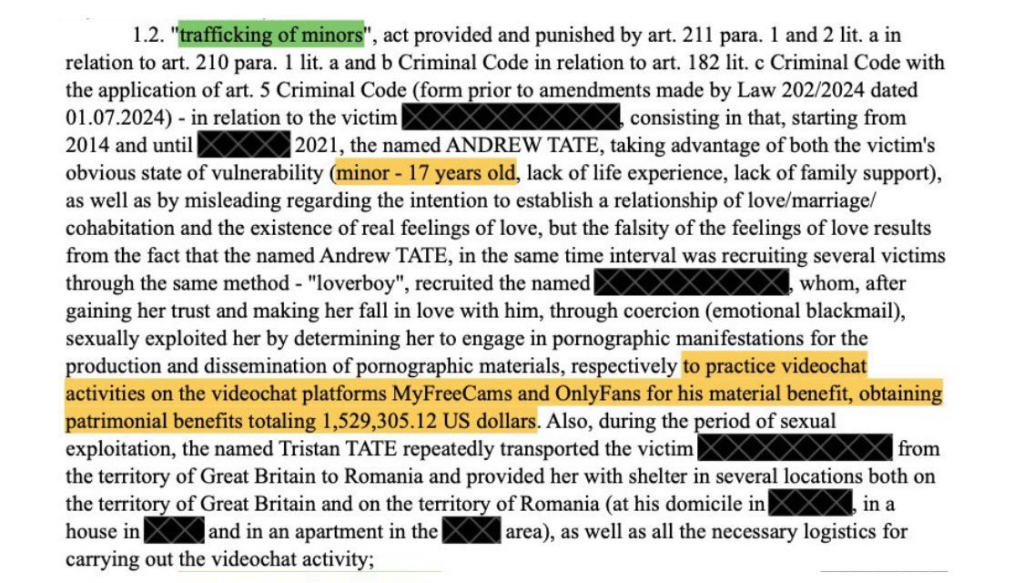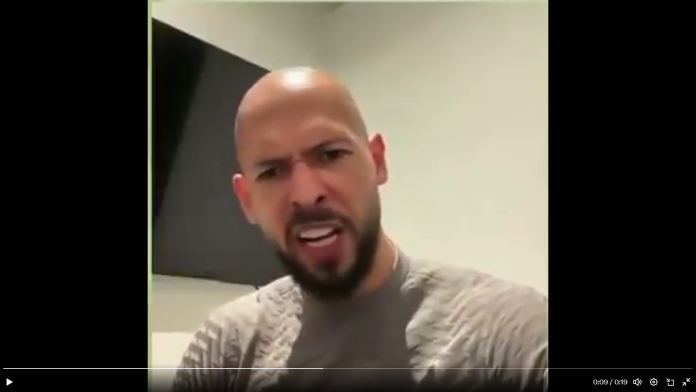Low-intelligent, emotionally insecure young men are looking to Andrew Tate as a role model. The behaviour they are learning and copying is not only destructive to society but also destructive to them.
Andrew Tate: “Come arrest me, you think I don’t wipe my phone every night?”
— Murdered By Crayons 🖍️ (@CrayonMurders) March 5, 2025
Andrew didn’t know his jail calls were being recorded and a significant portion of his Romanian case evidence came directly off his phone.
pic.twitter.com/zrmSc0qywR
The case of Kyle Clifford, a 26-year-old former soldier who brutally murdered his ex-girlfriend Louise Hunt, her mother Carol, and her sister Hannah, has brought into sharp focus the dangerous influence of Andrew Tate, a self-proclaimed “misogynist poster boy.” Clifford’s actions, described by prosecutors as fuelled by “violent misogyny,” were allegedly influenced by Tate’s rhetoric, which glorifies male dominance, control over women, and toxic masculinity. This case is a chilling reminder of how Tate’s ideology can radicalise vulnerable young men, leading to catastrophic consequences.
The Role of Andrew Tate’s Misogyny in the Murders
Kyle Clifford has just been found guilty of raping his ex girlfriend before brutally murdering her and her sister with a crossbow, and stabbing her mother to death. Less than 24 hours before his attack he had been listening to an Andrew Tate podcast. pic.twitter.com/NRpvXRuHBK
— Ellie Wilson (@ellieokwilson) March 6, 2025
Kyle Clifford had been searching for Andrew Tate’s podcast on YouTube the day before he carried out the four-hour attack on the Hunt family. Prosecutors argued that Tate’s promotion of violent misogyny played a significant role in shaping Clifford’s mindset. Clifford, who had a history of making “misogynistic and sexualised comments” about female colleagues, was described as someone whose identity was tied to controlling women and seeking their admiration.
Tate’s content, which often includes demeaning and dehumanising views of women, resonated with Clifford. One of Louise’s friends recalled asking Clifford why he was watching a Tate video involving drugged animals, to which he replied, “Because it’s funny.” This casual acceptance of cruelty and misogyny underscores how Tate’s influence can normalise harmful behaviour.
Prosecutor Alison Morgan KC argued that Clifford’s interest in Tate’s ideology helped explain his “incandescent rage” after Louise ended their relationship. His “sense of entitlement” and inability to accept rejection fueled his violent actions, which included tying Louise up, raping her, and ultimately killing her and her family members with a crossbow.
Andrew Tate: A Dangerous Influence on Young Men
Andrew Tate, a former kickboxer turned social media influencer, has built a massive following by promoting hyper-masculinity, wealth, and dominance over women. His rhetoric often glorifies violence, control, and the objectification of women, presenting these as markers of success and power. For young men struggling with identity, self-esteem, or relationships, Tate’s message can be dangerously appealing.
Seeing this video of Andrew Tate beating a 17 year old girl with a belt for “texting other guys” makes me sick. I’ve ALWAYS been anti Tate brothers and my instinct has NEVER been wrong my whole career. pic.twitter.com/vyavgjAojS
— Chloe Roma (@The_RomaArmy) March 6, 2025

Tate’s content preys on insecurities, offering a distorted worldview where women are subservient and men must assert dominance to be respected. This ideology is not only deeply harmful but also radicalising. It fosters resentment, entitlement, and a warped sense of masculinity that can lead to real-world violence, as seen in Clifford’s case.
The Broader Impact of Tate’s Rhetoric
The influence of figures like Andrew Tate extends beyond isolated incidents. His rhetoric contributes to a culture of misogyny that normalises violence against women and undermines gender equality. Young men who consume his content are at risk of internalizing these toxic beliefs, which can manifest in abusive relationships, sexual violence, and even extreme acts like Clifford’s.
Let Andrew Tate explain the “lover boy” method of human trafficking to you in his own words.pic.twitter.com/oJpBj7oKqK
— Murdered By Crayons 🖍️ (@CrayonMurders) March 6, 2025
Tate’s reach is amplified by social media platforms, where his videos and podcasts are easily accessible. Despite being banned from several platforms, his content continues to circulate, reaching millions of young men worldwide. This widespread dissemination of misogynistic ideology poses a significant threat to societal progress and the safety of women.
A Call to Action
The case of Kyle Clifford is a tragic example of how dangerous ideologies can lead to devastating outcomes. It highlights the urgent need to address the influence of figures like Andrew Tate and the toxic masculinity they promote. Parents, educators, and policymakers must work together to counter this narrative, providing young men with healthier models of masculinity and relationships.
Social media platforms also have a responsibility to curb the spread of harmful content. While Tate’s rhetoric may be protected under free speech, its real-world consequences cannot be ignored. Platforms must prioritise the safety of their users by removing content that incites violence or promotes hate.
In summary, Andrew Tate’s influence is not just a matter of controversial opinions; it is a dangerous force that can radicalise young men and lead to horrific acts of violence. The case of Kyle Clifford serves as a stark warning about the real-world impact of misogynistic rhetoric. It is a call to action for society to reject toxic masculinity and work towards a future where young men are empowered to build healthy, respectful relationships. The stakes are too high to ignore.







